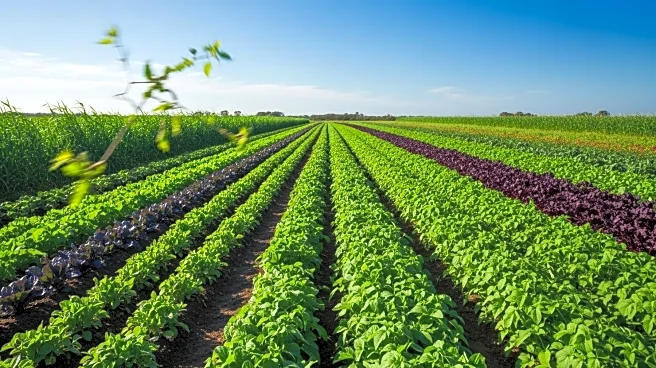What is the story about?
What's Happening?
The Australia organic farming market is projected to grow significantly, with its size expected to increase from USD 2.81 billion in 2024 to USD 5.42 billion by 2033, according to IMARC Group's latest research. This growth is driven by rising consumer demand for chemical-free, healthy food and government support through financial incentives and climate-smart initiatives. AI technologies are reshaping the market by optimizing soil management, enhancing crop monitoring, predicting climate resilience, streamlining certification management, and personalizing market connections. The market expansion is supported by supermarkets expanding organic sections and restaurants prioritizing organic ingredients.
Why It's Important?
The growth of Australia's organic farming market reflects a broader shift towards sustainable agriculture and health-conscious consumer behavior. This expansion has significant implications for the agricultural sector, offering economic opportunities and promoting environmental sustainability. The adoption of AI technologies enhances efficiency and productivity, helping farmers meet certification standards and adapt to climate challenges. The market's growth also supports public health by reducing exposure to synthetic pesticides and offering higher nutrient content in food products.
What's Next?
Australia's organic farming industry is expected to continue its expansion, with ongoing government support and technological advancements driving growth. The industry seeks further election commitments to unlock future potential, focusing on strengthening domestic regulation and expanding market access. Export opportunities are likely to increase, with international buyers valuing Australia's certified organic products for their quality and safety.
Beyond the Headlines
The expansion of organic farming in Australia may lead to broader cultural and ethical shifts, as consumers increasingly prioritize sustainability and health in their purchasing decisions. This trend could influence global agricultural practices, encouraging other countries to adopt similar approaches to organic farming and certification standards.















